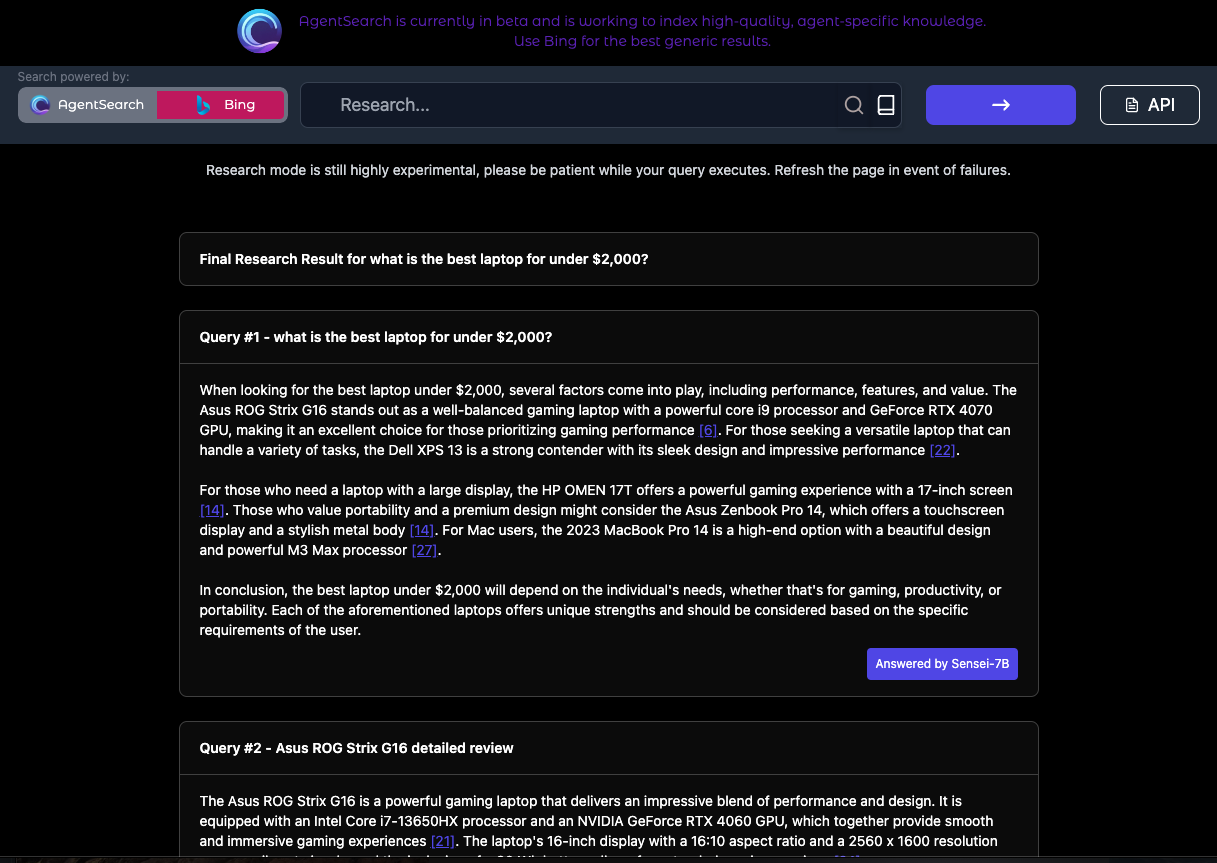AgentSearch - An LLM-first Search RAG Client and Engine
Ground your LLM application or agent with live Search results
Hey Everyone,
First off, thanks to everyone who has engaged with the research content that I have put out so far. I wanted to take some time today to write about an important project I have been working on recently in the context of SciPhi, my latest start-up.
Without further ado:
Introducing AgentSearch, an Open Source and hosted Search RAG service for LLMs. Our features include custom fine-tuned models and a choice between search engines (currently Bing and AgentSearch). Integration is straightforward, register, install via pip, and use the Python client to generate Search RAG responses.
Problem — LLMs lack live data and often produce hallucinations
Through conversations with other founders and our own demos, we've identified a recurring theme. The absence of live data and the tendency for hallucinations are among the key challenges in building production-grade LLM applications.
Solution — Ground output in high quality search results
We've been developing infrastructure to address this. Our goal is to create a fast and scalable system which enables LLMs everywhere to ground their responses in accurate, high-quality, live information.
⭐ Search RAG API
You can use AgentSearch as part of your application workflow.
Our Search RAG endpoint enables fast access to a line-item cited response that can be displayed directly or fed upstream. The setup process is straightforward:
pip install agent-searchTest it out
from agent_search import SciPhi
client = SciPhi(api_key=YOUR_API_KEY)
# Generate a RAG response
rag_response = client.get_search_rag_response(query='latest news', search_provider='bing', llm_model='SciPhi/Sensei-7B-V1')
print(rag_response)
# {
# 'response': '\nThe latest news encompasses ...,
# 'other_queries': ['Details on the ....],
# 'search_results': [...]
# }
We would love your feedback and are happy to walk anyone through the setup and features if it is helpful.
🖥️ Demo
If you don’t have time right now to set up the API, or if you would like to see the system in action first, then please head to search.sciphi.ai.
The linked example is shown below. It illustrates Research Mode, an experimental setting that allows the agent to generate it’s own queries in order to get the best answer to a given question.
📘Open Source
Lastly, in addition to the hosted services mentioned, I want to talk a bit about Open Source. We believe Open Source is very important for making AI more accessible and innovative. That's why we are soon releasing the first version of our AgentSearch engine.
This release will include a 4TB dataset of high-quality embeddings, ranging from Arxiv and Wikipedia to a carefully filtered common crawl. Furthermore, the source code that powers the search engine will also be made publicly available.
In addition, we have open-sourced Sensei-7B, our first search agent. This means anyone interested can see how the whole system works and even contribute to making it better.
Please give the API, the application, or the model a try and let me know how it went!


